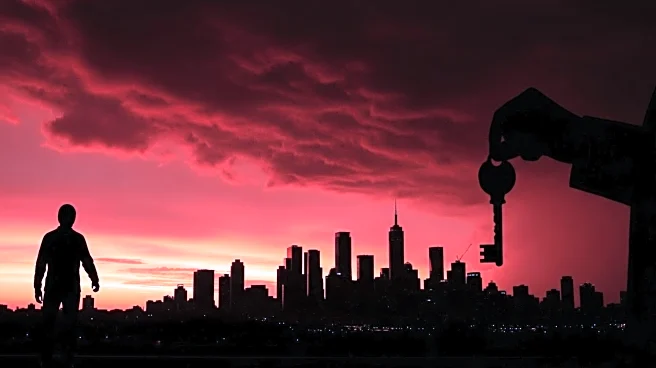What's Happening?
The Israeli drama series 'Red Dawn,' which portrays the Hamas-led terror attack of October 7, has been acquired by HBO Max. The series, created by Oded Davidoff and Daniel Finkelman, is divided into two parts. The first segment focuses on the story of three Haredi (ultra-Orthodox) volunteers operating a single ambulance amid one of the deadliest scenes in southern Israel, with Yuval Semo starring as volunteer Avi Jan. The second part will include the story of Omri Shem Tov, a survivor of Hamas captivity who was abducted during the attack, portrayed by Ori Perlman. The series is a co-production involving FOX Entertainment, Moriah Films, ZOA Films, and Sparks Go. According to Yes, the series will premiere in the United States on October 7.
Why It's Important?
The acquisition of 'Red Dawn' by HBO Max highlights the growing interest in international narratives that address significant geopolitical events. By bringing this series to a U.S. audience, HBO Max is providing viewers with a dramatic portrayal of real-world events that have had profound impacts on global politics and security. This move could enhance cultural understanding and awareness of the complexities surrounding the Israeli-Palestinian conflict. Additionally, it underscores the role of streaming platforms in diversifying content and offering stories that might not be covered extensively by traditional media outlets.
What's Next?
The series is set to debut in the United States on October 7, which may lead to increased discussions and analyses of the events depicted. As the series gains viewership, it could spark conversations about the portrayal of international conflicts in media and the responsibilities of content creators in representing sensitive historical events. Stakeholders such as political analysts, cultural commentators, and viewers may engage in debates about the accuracy and impact of such dramatizations.
Beyond the Headlines
The series 'Red Dawn' may also contribute to broader discussions about the ethical implications of dramatizing real-life tragedies. It raises questions about the balance between storytelling and factual representation, and how media can influence public perception of complex geopolitical issues. Furthermore, it may prompt dialogue about the role of entertainment in shaping narratives around conflict and the potential for media to serve as a tool for education and empathy.









